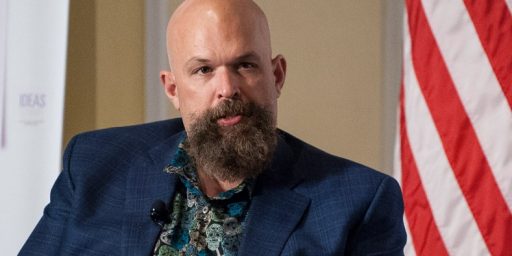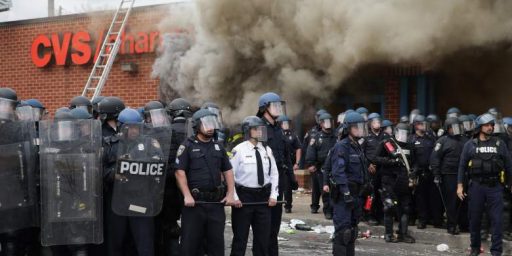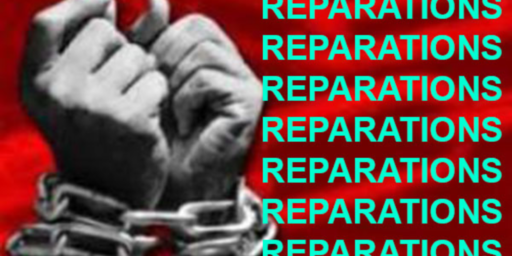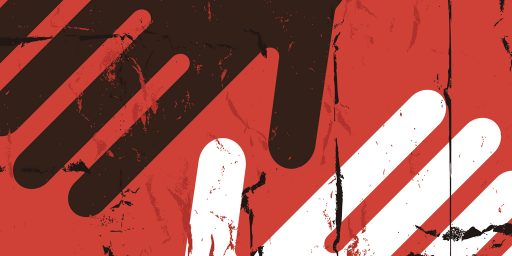The Role of Police
Ta-Nehisi Coates has an interesting piece at The Atlantic that is worth a read: The Myth of Police Reform. While the whole piece is worth a read, I would highlight two points.
First, he raises a key issue about the overburdening of police that we, as a society, have engaged in:
At some point, Americans decided that the best answer to every social ill lay in the power of the criminal-justice system. Vexing social problems—homelessness, drug use, the inability to support one’s children, mental illness—are presently solved by sending in men and women who specialize in inspiring fear and ensuring compliance. Fear and compliance have their place, but it can’t be every place.
Without a doubt we put a lot of social problems in the lap of law enforcement. As such, some of the tragic events we have seen lately are not surprising (Coates lists some examples in the piece).
Second, he makes a very useful point about the way the basic relationship between the African-American community and law enforcement has operated over time (specifically in the contrast between power and authority):
African Americans, for most of our history, have lived under the power of the criminal-justice system, not its authority. […] When African American parents give their children “The Talk,” they do not urge them to make no sudden movements in the presence of police out of a profound respect for the democratic ideal, but out of the knowledge that police can, and will, kill them.
But for most Americans, the police—and the criminal-justice system—are figures of authority. The badge does not merely represent rule via lethal force, but rule through consent and legitimacy rooted in nobility.
These are both, I think, thought-provoking points making the piece worth a read and the overall implications worthy of further thought.






I’m not sure that “the talk” that Coates is referring to is limited to the African American community because I remember that in the portion of working class America in which I grew up, the primary reason to “respect” the police was that they could throw you in jail simply because they wanted to. Certainly, my situation was not as fragile as it was for black kids (and Filipinos in my neighborhood) but I don’t remember very much “rule…rooted in nobility.”
Just my experience, your results may differ.
@Just ‘nutha’ ig’rant cracker: There is a pretty significant space between having to tell your child that the police might arrest you and the police might kill you.
And yes, “rooted in nobility” may be a bit much, but “rule through consent and legitimacy” is a reasonable assessment, I think.
Fear and compliance can’t be every place if you want the answer to social problems to be the solving of those problems. If, like most voters, you really only care that those problems not be seen, then fear and compliance can be every place.
Keeping the lower classes in line is a traditional police responsibility. I don’t think anyone’s told them to stop. And we won’t unless we figure out we should do better.
@Just ‘nutha’ ig’rant cracker: I wasn’t taught that the police could kill me on a whim, but that they could jail me on a whim. Privilege!
@Tillman: Tillman, that *is* privilege. It’s the difference between they have to account for your person, and your body is left to rot on the street, or thrown into the morgue without even trying to notify next of kin.
Now, it *sucks*, but it’s like the difference between being a US/UK POW of the Nazis, and a Soviet POW of the Nazis. The latter were pretty much just killed.
What I find strange is the ever increasing military appearance of the police. Every town has a SWAT team and armored personnel carriers. I am uncomfortable with this trend. As a child, I lived in preWall Berlin; one could easily ride the subway between the zones. In West Berlin, the cops (the Schupos) wore preWW One uniforms, kind of Keystone Kops in appearance. I don’t recall whether they carried firearms. On the east side, the Vopos wore black unis. They were frequently accompanied by big dogs and often armed with PPSch Russian submachine guns. The Vopos were clearly intended to intimidate and cow people, and the Schupos at least tried to project a folksier attitude. Where I live now, the cops wear black unis, have shaved heads, and carry sidearms holding a dozen rounds. Why do we have scary looking Robocops in a free society?
@gVOR08: i’s ironic- the people who seem to hate the police are the very one’s that utilize them most.
@Barry: I know it’s privilege, that’s why I said “Privilege!” at the end. 🙂 That’s literally the clearest way to express it to a white person. They balk at the idea until you ask them how they deal with police. When you point out that police don’t think they can kill you, you get them to realize what privilege is and how much they take it for granted.
If punk music and my relatives’ utter love for it has taught me anything, it’s that everyone distrusts authority to a certain extent. You just have to find the mental template (or heuristic) they use for figuring out legal consequences to bad actions, and get them to realize that for other people those consequences are worse. That gets sympathy straight away in my experience.
“Vexing social problems—homelessness, drug use, the inability to support one’s children, mental illness—are presently solved by sending in men and women who specialize in inspiring fear and ensuring compliance. ”
1) This leads pretty directly into a question about what the future of policing should look like. My sense of the current ideal is that we’re moving towards a model of community based policing in which officers are a mixture of law enforcement and social worker, albeit with a lot of conflict along the way. While I’m generally supportive of this model (provided that departments adjust their hiring preferences to match and stop pretending that veterans automatically make good officers, etc), Mr. Coates piece makes me wonder if perhaps that is the wrong direction – perhaps we would be better off disconnecting the community support and enforcement roles entirely, and re-tuning the system to give priority to the latter?
@Slugger:
A lot of that aesthetic and attitude has to do with a police culture that has become quasi-military over the years – the tacticool look with the shaved head and the oakleys isn’t mandatory at any department that I know of, but it’s very trendy. Last time I looked into it, a big part of officer training also involved a kind of ‘scared straight’ program in which recruits were shown case studies of officers who failed to control their contacts or who hesitated to use force, and who payed with their lives. Add that to a profession that tends to be very insular (and you thought the civil-military divide was bad . . . ) and this is what you get.
Some of it is also common sense though. The US is not western Europe in many, many ways, and LEOs in the states carry modern sidearms for a reason.
@CET: “Some of it is also common sense though. The US is not western Europe in many, many ways, and LEOs in the states carry modern sidearms for a reason. ”
As has been pointed out many times in many places, the rates of police death through violence have been dropping sharply for many years now, and are well under the rates for convenience store clerks. The police are not ‘up-gunning’ due to increased threats, but because they can.